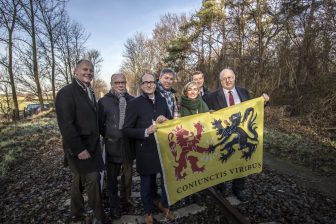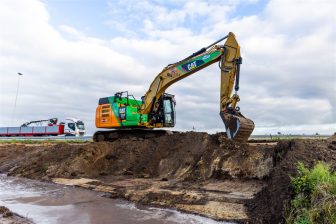Report underlines progress EU-Russia Energy Dialogue
Brussel РThe Sixth Progress Report on the EU-Russia Energy Dialogue, prepared by the Russian Minister of Industry and Energy Victor Khristenko and European Commission Director General Fran̤ois Lamoureux in view of the EU-Russia Summit held in London on October 4, takes note of the steady progress being made in EU-Russia energy relations and underlines the importance for continuing work on bringing energy strategies closer.
The latest report highlights the success of the dialogue in helping to solve a number of important issues between the EU and Russia in the energy sector. It recognises the need for increasing co-operation and exchange of information in the context of the volatile and currently very high oil prices, and the usefulness of jointly examining all related issues, including refining capacities and markets, increasing the supply of oil and gas, as well as the importance of oil strategic stocks and long-term supply contracts for natural gas. The report also notes that the planned European energy observation system within the Commission services will provide an excellent opportunity for practical co-operation.
The practical achievements of the Technology Centre in Moscow in bringing together Russian and EU energy industry representatives are welcomed in the report, as is its growing importance in promoting EU-Russian energy technology co-operation. The Centre has held numerous events and Round Tables on specific energy issues of joint interest, like the very high potential for reducing gas flaring in Russia.
The report underlines the importance of working on convergence of regulatory frameworks in the EU and Russia, on the continued development of an attractive, stable and predictable investment climate in Russia that foresees an active role for European investors and on the oil and gas transportation infrastructure projects and the integration of electricity markets.
For the EU, Russia is today the single most important external supplier of natural gas and oil. Russia accounts for some 50% of total gas imports or 25% of total EU gas consumption, and for over 30% of total crude oil and oil product imports or over 25% of total EU oil consumption.
The EU-Russia Energy Dialogue was launched at the EU-Russia Summit of 30 October 2000 to provide an opportunity to raise all the questions of common interest relating to the sector, including cooperation on energy saving, rationalisation of production and transport infrastructures, and European investment possibilities. The two designated interlocutors, Industry and Energy Minister Viktor Khristenko and Director-General for Energy and Transport François Lamoureux, have met on numerous occasions since to give guidance to the ongoing work and have, to date, jointly prepared six Progress Reports.
The current structure of the Energy Dialogue is ensuring the close involvement of the EU Member States, the European energy industry and the International Financial Institutions. Four thematic working groups are bringing together more than 100 European and Russian experts from the private sector and from the administrations to discuss investments, infrastructures, trade and energy efficiency issues and to prepare further proposals for the Energy Dialogue. These groups prepared a first interim report for the meeting of the EU-Russia Permanent Partnership Council on Energy that was held in London on October 4 and will be presenting final reports by the end of the year.
See also: http://europa.eu.int/comm/energy/russia/joint_progress/index_en.htm
http://www.technologycentre.org
U las zojuist één van de gratis premium artikelen
Onbeperkt lezen? Profiteer nu van de introductieaanbieding voor € 10,- per maand.
Bent u al abonnee?



